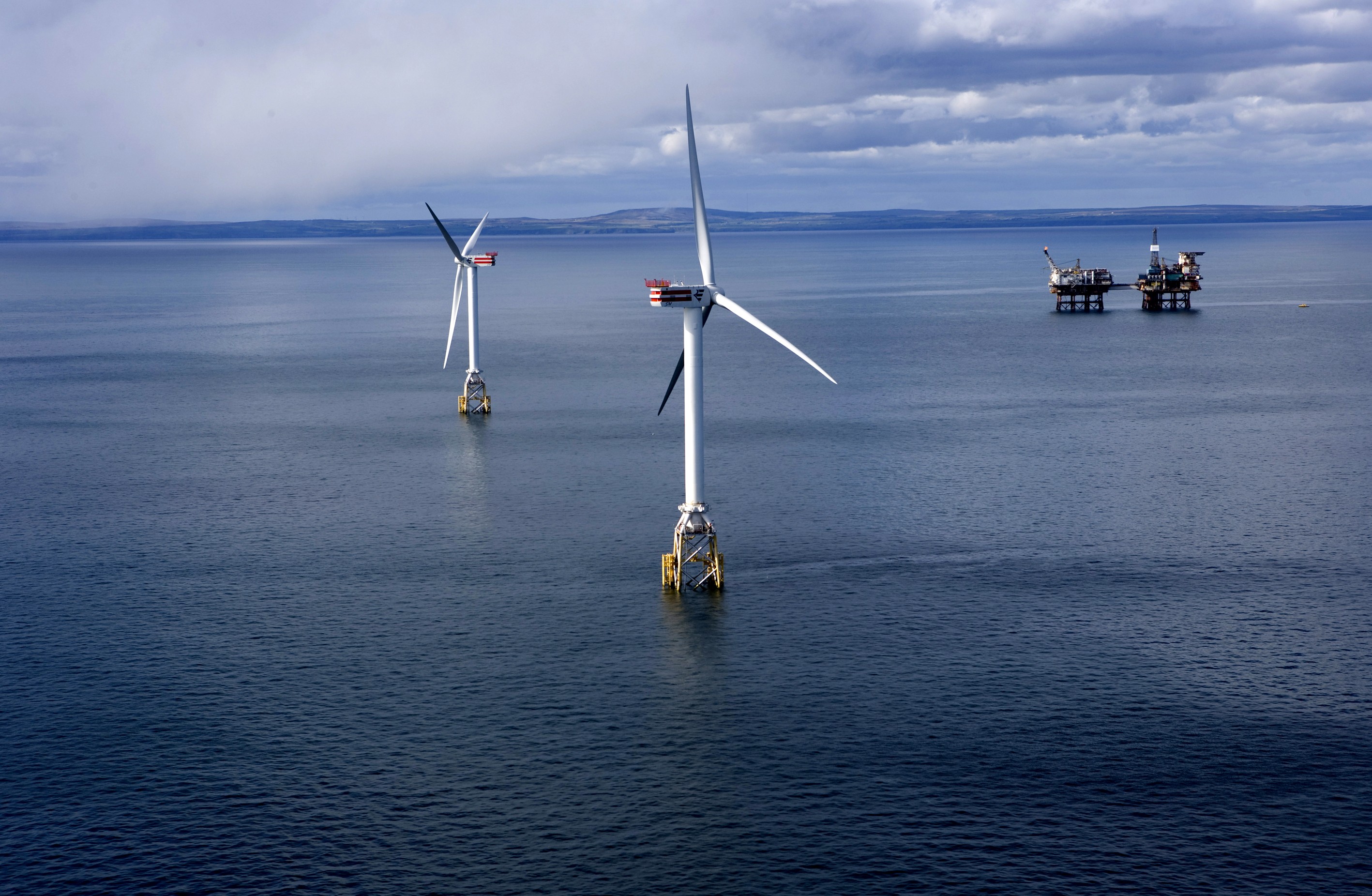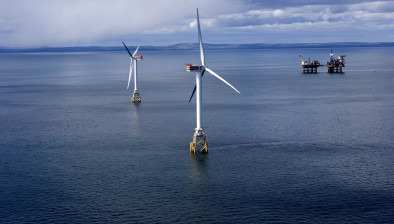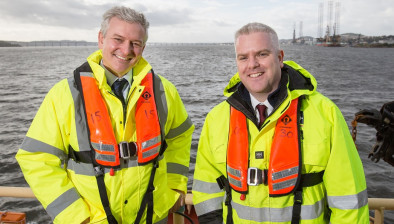Industry-public partnership founded to oversee ‘exciting new phase’ of Scottish offshore wind sector
Scotland’s offshore wind sector would increase eightfold under “bold plans” put forward by a new group – building enough capacity to power every household in Scotland twice over.

The Scottish Offshore Wind Energy Council, which launches today, also aims to lead and support the industry, boost the local content of projects and increase jobs in line with the Sector Deal signed between industry and the UK Government in March.
The council is co-chaired by energy minister Paul Wheelhouse and Brian McFarlane, head of projects, offshore development at SSE Renewables.
Its membership also includes Scottish Renewables, Scottish Enterprise, the Offshore Renewable Energy Catapult, Crown Estate Scotland, Red Rock Power and the Energy Skills Partnership.
The Scottish Offshore Wind Energy Council’s vision is: An offshore wind sector which plays to Scotland’s strengths, delivering jobs, investment and export opportunities in line with the UK Sector Deal as a key part of the path to net-zero.
Scotland currently has around 1GW of operational offshore wind, which would increase to 8GW – enough to power the equivalent of 5.2 million households, more than double the number in Scotland – by 2030 under the council’s goal.
Paul Wheelhouse MSP said: “Offshore wind presents an enormous opportunity for Scotland, both in terms of its ability to help us decarbonise our energy system and in terms of its potential to generate economic value for Scotland.
“The Scottish Offshore Wind Energy Council has been created to ensure that all those involved are pulling together to deliver on bold plans to create a competitive, commercially-attractive offshore wind sector in Scotland which can deliver both domestically and in the global offshore wind market, with opportunities to develop a globally-competitive supply chain for fixed foundation and floating wind technologies.
“The broad nature of the group – including as it does representatives from both the public and private sectors – and the skills and experience on which it can draw give Scotland the very best chance of success in offshore wind as these multi-billion pound renewable energy projects build out in Scottish waters.”
The Scottish Offshore Wind Energy Council is committed to five goals:
- Deliver at least 8GW of offshore wind in Scottish waters by 2030.
- Develop a plan for offshore wind’s contribution to achieving Scotland’s climate change ambition of net-zero greenhouse gas emissions by 2045.
- Create a competitive, commercially-attractive offshore wind sector in Scotland which can deliver both domestically and in the global offshore wind market, with a focus on project development, deeper water capability and innovative technology solutions.
- Work to increase local content in line with the ambitions set out in the UK Sector Deal, developing a sustainable, world-class supply chain in Scotland.
- Boost the number of offshore wind jobs in Scotland to more than 6,000; an increase of 75% on 2019 figures.
The council will work with two offshore wind clusters – DeepWind and Forth & Tay Offshore, set up as part of the Sector Deal – to deliver the best conditions for local companies to both enter and develop in the offshore wind sector.
Brian McFarlane said: “Offshore wind is great news for Scotland, delivering jobs, reduced carbon and lower energy bills.
“The council’s goals are aligned around the need to capture Scotland’s offshore renewable energy resource in a way which delivers maximum economic and environmental advantage.
“Offshore wind will play a key role in our efforts to tackle the climate emergency and achieve Scotland’s ambitious net-zero emissions target, and the members of the Council are committed to ensuring that Scotland makes the most of this most innovative of technologies as we seek to further decarbonise our energy system.”





















